CONTENTS
Guide
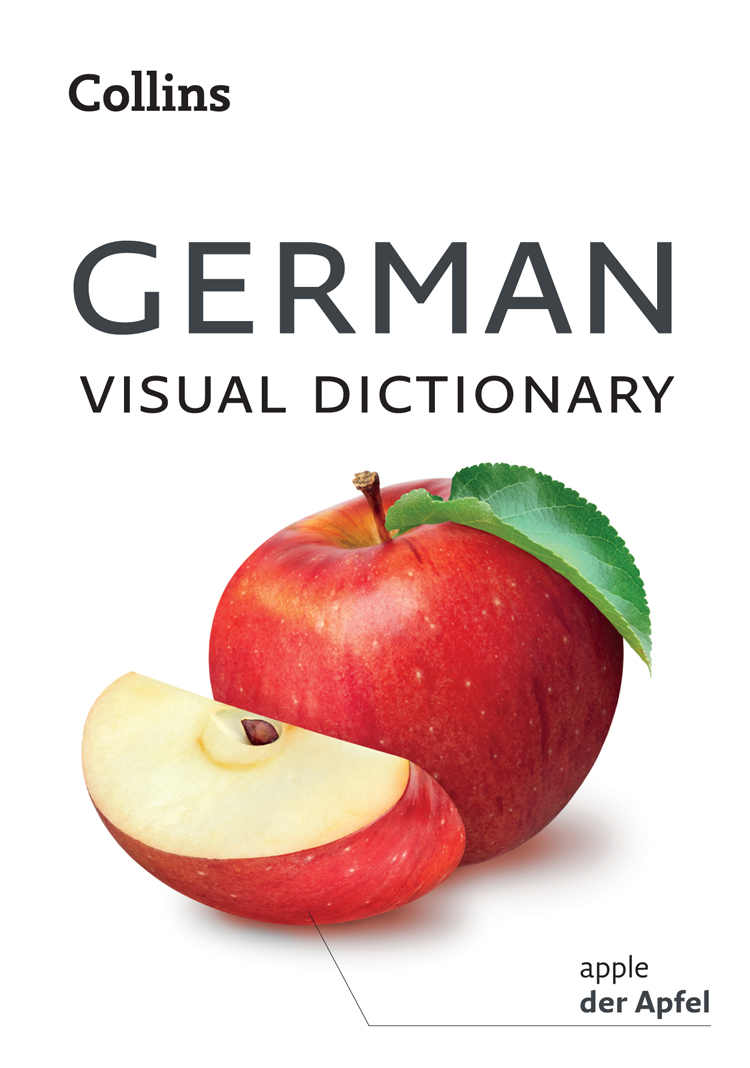
Published by Collins An imprint of HarperCollins Publishers Westerhill Road Bishopbriggs Glasgow G64 2QT First Edition 2019 HarperCollins Publishers 2019 Collins is a registered trademark of HarperCollins Publishers Limited Ebook Edition March 2019 ISBN: 9780008319977 Version: 2019-03-13 All rights reserved under International and Pan-American Copyright Conventions. By payment of the required fees, you have been granted the non-exclusive, non-transferable right to access and read the text of this ebook on screen. No part of this text may be reproduced, transmitted, downloaded, decompiled, reverse engineered, or stored in or introduced into any information storage and retrieval system, in any form or by any means, whether electronic or mechanical, now known or hereafter invented, without the express written permission of HarperCollins. Entered words that we have reason to believe constitute trademarks have been designated as such. However, neither the presence nor absence of such designation should be regarded as affecting the legal status of any trademark. HarperCollins does not warrant that any website mentioned in this title will be provided uninterrupted, than any website will be error free, that defects will be corrected, or that the website or the server that makes it available are free of viruses or bugs.
For full terms and conditions please refer to the site terms provided on the website. If you would like to comment on any aspect of this book, please contact us at the given address or online. E-mail  www.facebook.com/collinsdictionary
www.facebook.com/collinsdictionary  @collinsdict
@collinsdict
We would like to thank those authors and publishers who kindly gave permission for copyright material to be used in the Collins Corpus. We would also like to thank Times Newspapers Ltd for providing valuable data.
MANAGING EDITOR Maree Airlie
FOR THE PUBLISHER Gerry Breslin Gina Macleod Kevin Robbins Robin Scrimgeour
CONTRIBUTORS Lauren Reid Anna Stevenson Silke Zimmermann
TECHNICAL SUPPORT Claire Dimeo
CONTENTS
Whether youre on holiday or staying in a German-speaking country for a slightly longer period of time, your
Collins Visual Dictionary is designed to help you find exactly what you need, when you need it.
The Visual Dictionary includes:- 10 chapters arranged thematically, so that you can easily find what you need to suit the situation
- images illustrating essential items
- YOU MIGHT SAY common phrases that you might want to use
- YOU MIGHT HEAR common phrases that you might come across
- VOCABULARY common words that you might need
- YOU SHOULD KNOW tips about local customs or etiquette
USING YOUR COLLINS VISUAL DICTIONARY In order to make sure that the phrases and vocabulary in the
Collins Visual Dictionary are presented in a way thats clear and easy to understand, we have followed certain policies when translating: 1) The polite form Sie (you) has been used throughout the text as this is always safe to use, even if a bit formal at times, for example: How old are you?
Wie alt sind Sie? Remember that if you are addressing an older person or someone you have just met in German, you use Sie.
The Visual Dictionary includes:- 10 chapters arranged thematically, so that you can easily find what you need to suit the situation
- images illustrating essential items
- YOU MIGHT SAY common phrases that you might want to use
- YOU MIGHT HEAR common phrases that you might come across
- VOCABULARY common words that you might need
- YOU SHOULD KNOW tips about local customs or etiquette
USING YOUR COLLINS VISUAL DICTIONARY In order to make sure that the phrases and vocabulary in the
Collins Visual Dictionary are presented in a way thats clear and easy to understand, we have followed certain policies when translating: 1) The polite form Sie (you) has been used throughout the text as this is always safe to use, even if a bit formal at times, for example: How old are you?
Wie alt sind Sie? Remember that if you are addressing an older person or someone you have just met in German, you use Sie.
However, if you are speaking to a child or someone you know well, you can use du. If you are speaking to more than one person you know well, you should use ihr. Once you get to know someone, they may suggest that you use du instead of the more formal Sie. You can call me du. Sie knnen mich duzen. 2) The grammatical gender of German nouns has been indicated using the articles der (masculine), die (feminine) and das (neuter). a green salad ein grner Salat a green jacket eine grne Jacke a green dress ein grnes Kleid green shoes grne SchuheFREE AUDIO We have created a free audio resource to help you learn and practise the German words for all of the images shown in this dictionary. a green salad ein grner Salat a green jacket eine grne Jacke a green dress ein grnes Kleid green shoes grne SchuheFREE AUDIO We have created a free audio resource to help you learn and practise the German words for all of the images shown in this dictionary.
The German words in each chapter are spoken by native speakers, giving you the opportunity to listen to each word twice and repeat it yourself. Download the audio from the website below to learn all of the vocabulary you need for communicating in German. www.collinsdictionary.com/resources
Whether youre going to be visiting a German-speaking country, or even living there, youll want to be able to chat with people and get to know them better. Being able to communicate effectively with acquaintances, friends, family, and colleagues is key to becoming more confident in German in a variety of everyday situations.

umbrella
der (Regen)schirm 1. red
rot 3. green
grn 4. white
wei 5. black
schwarz 6. yellow
gelbTHE BASICS | DAS WESENTLICHE
Hello.
Hallo. Hi!
Hallo! Good morning.
Guten Morgen. Good afternoon.
Guten Tag. Good evening.
Guten Abend. Goodnight.
Gute Nacht. See you soon.
Bis bald. See you tomorrow.
Bis morgen. See you on Saturday.
Bis Samstag. Bye!
Tschss! Have a good day/ evening!
Schnen Tag / Abend!YOU SHOULD KNOW German people are quite formal when initially introduced, shaking hands upon meeting and parting.
Bis Samstag. Bye!
Tschss! Have a good day/ evening!
Schnen Tag / Abend!YOU SHOULD KNOW German people are quite formal when initially introduced, shaking hands upon meeting and parting.
Friends and relatives will often greet each other with one kiss on the cheek. Guten Tag is used to greet someone during the day; Guten Morgen is used in the morning, and Guten Abend in the evening. Yes. Ja. No. Nein. I dont know. Bitte. Yes, please. Ja, bitte. Thank you. Vielen Dank. No, thanks. Nein, danke. Excuse me. Entschuldigung. Sorry? Wie bitte? Im sorry. Es tut mir leid. OK! Einverstanden! Youre welcome. Bitte. I dont understand.

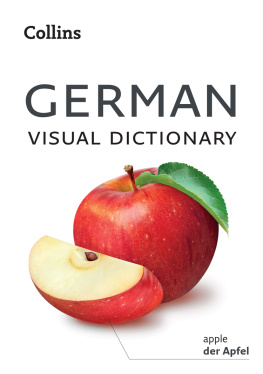
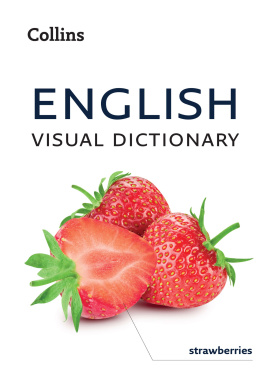

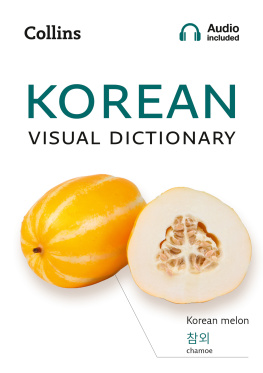

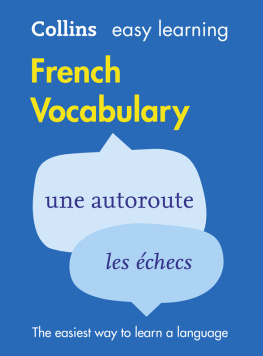





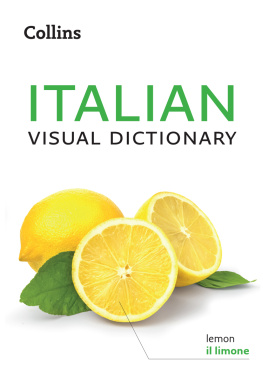
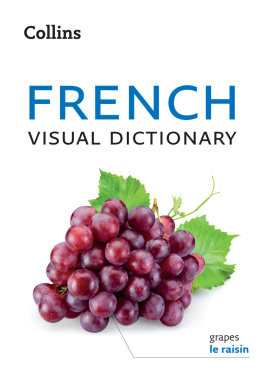




 www.facebook.com/collinsdictionary
www.facebook.com/collinsdictionary  @collinsdict
@collinsdict umbrella der (Regen)schirm 1. red rot 3. green grn 4. white wei 5. black schwarz 6. yellow gelb
umbrella der (Regen)schirm 1. red rot 3. green grn 4. white wei 5. black schwarz 6. yellow gelb